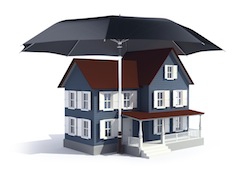Many are shocked when they learn how much they owe to close on their mortgage. But there are ways to save before you sign on the dotted line.
Closing costs seem to be a necessary evil when securing a new, or refinancing a current, mortgage. And they can be expensive—anywhere from 3 percent to 6 percent of the price of your home. But there is a silver lining: you can reduce your closing costs with a little knowledge and a few negotiating tactics.
Understand the various closing costs
Whoever said “a little knowledge goes a long way” must have purchased a home before. This age-old adage is especially true when it comes to understanding what exactly it is you’re paying for when you close on your mortgage. Here’s a quick overview of the basic costs:
Title search and insurance fees: Most lenders require both of these fees. A title search can be performed by an escrow or title company or an attorney and ensures that the seller of the property is the legal owner and that there are no outstanding liens against the property. Title insurance protects the lender against any errors from the title search. (Be aware that title insurance protects only the lender—not you.)
Appraisal fee: This is paid to a third party who determines the value of the home you want to purchase. Required by lenders, an appraisal helps ensure that the property is worth at least as much as the loan amount.
Credit check fee: A fee paid to a third party by your lender to verify your credit history and credit score. (Learn how to improve your credit score.)
Flood certification fee: Also paid by your lender to a third party to determine if the property you wish to purchase is in a flood-prone area. If it is, you will need to purchase flood insurance before a lender can offer you a mortgage. (Get more information about the National Flood Insurance Program.)
Homeowner’s insurance: While this is not a fee you’ll need to pay to your lender, you will need to provide proof of homeowner’s insurance upon closing. This protects your home—and your lender’s investment in your home—from financial damage caused by fire, vandalism and other occurrences.
Inspection fees: Having your soon-to-be home inspected prior to closing is not required, but is recommended. An inspection can check the home’s foundation, interior plumbing and electrical systems, heating and cooling systems, structural components and more. You’ll need to cover the costs associated with the inspection.
Points: Points are a one-time charge that you can pay to the lender to reduce your interest rate on your mortgage. One point equals one percent of your loan amount. (If you pay points at the time that you close your loan, then your points are deductible on your income taxes for that year.) Paying for points is optional.
Loan origination fee: A fee of many different names (processing fee, administrative fee, etc.), this is charged by your lender for processing your loan.
Private mortgage insurance: If you do not provide a down payment of at least 20 percent of your home’s purchase price, then your lender will tack on private mortgage insurance (PMI) to your loan. It’s meant as an insurance policy for the lender in case you don’t make your payments. You can cancel your PMI in writing once you reach 20 percent equity in your home (as long as your payments are current). Or, your PMI will automatically drop off your monthly payments once you reach 22 percent equity (again, only if your payments are current).
Prepaid interest: While your first mortgage payment might not be due for over a month after you close, your interest payments start right away. The lender will figure out how much interest you owe for the month that you close, which depends on the number of days between closing and the end of the month.
Where you can save
It will be hard to negotiate any fees that result from third parties, which include fees like title search and insurance, credit checks, flood certification, and appraisals.
Most other fees, though, are up for negotiation. The best way to save? Shop around. If you choose to have the home you are purchasing inspected, be sure to get several quotes from reputable inspectors, along with the services they will be providing. When looking for homeowners insurance, be sure to keep these tips in mind. And be sure to visit several lenders for an idea of their costs. While they can only give you an estimate, you’ll have a general idea of what fees will be included.
You can also ask the seller to pay some or all of your closing costs during your negotiations for purchasing the home. Keep in mind, however, that the seller may counter with a higher purchase price in order to include those costs.
Get it in writing
By federal law, once you have submitted your loan application, the prospective lender is required to provide you with a “Good Faith Estimate” or GFE within three business days. The GFE lists all of your expected closing costs. Again, this will vary slightly from your actual closing costs, but provides you with a good comparison tool to determine what various lenders are charging. (Federal law allows third-party costs to vary up to 10 percent on the GFE, but certain lender charges are binding.)
And one day prior to your closing date, you are entitled to get a copy of your HUD-1 or HUD-1A settlement statement if you request it. Be sure you do. This is the final statement of your closing costs and will provide you with an accurate representation of what you’ll be expected to pay. Review it carefully to make sure nothing has been added that you don’t understand and that no costs have risen substantially.
When purchasing a home, it’s easy to get caught up in the excitement and to want to get through closing and move in as quickly as possible. But remember: you are making one of the largest financial decisions in your life. While it will take some research and time to gather all the information needed to make an informed decision, this is definitely an instance when you’ll want to do it.
This article contains general information. Individual financial situations are unique; please, consult your financial advisor or tax attorney before utilizing any of the information contained in this article.
Related Articles:
- Selling Your Home? Be Sure To Disclose
- Six Tools for Dealing with Negative Equity
- How to Choose a Bankruptcy Attorney
- How To Buy A Short Sale Property
- FHA Loan Requirements Are Changing
- FHA Refinance:Loan Options and Guidelines
- What are the FHA Loan Requirements?
- For Sale By Owner: How to Sell Your Own Home
- Selling Your Home? Try These Creative Strategies
- Staging Your Home For Sale: Room By Room
- Staging Your Home For Sale: Top Five Tips
- How To Challenge Your Property Assessment
- What is a 203K FHA Loan?
- Do You Qualify for an FHA Loan?
- First Time Homebuyers Guide
- Financial Assistance for First Time Homebuyers
- What Is A Short Sale?
- What Is A Deed-In-Lieu?
- How to Sell Your Home In a Down Market
- Should You Consider Owner Financing?
- Pros And Cons OF Owner Financing
- Owner Financing: How To Reduce Your Risk
 Print
Print Email
Email










